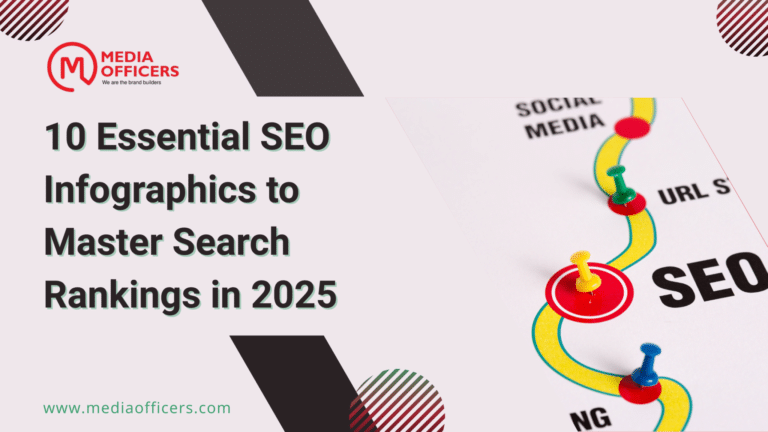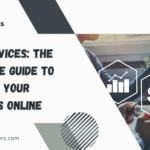In the digital era, a robust online presence is essential for e-commerce SEO success. With numerous websites vying for consumer attention, ensuring discoverability is paramount. Search engine optimization (SEO) is the key to achieving this goal.
SEO involves optimizing websites to achieve higher rankings in search engine results pages (SERPs), thereby increasing visibility to potential customers. For e-commerce sites, SEO is particularly critical as it directly affects the visibility of product pages, category pages, and overall website traffic. Effective SEO strategies can lead to increased organic traffic, improved online visibility, and ultimately, higher sales.
SEO also plays a crucial role in building credibility and trust with potential customers. Websites ranking high in search results are often perceived as more trustworthy and authoritative, potentially leading to higher click-through rates and conversions. Moreover, SEO enables e-commerce websites to gain a competitive edge.
By optimizing for relevant keywords and providing high-quality content, these sites can outrank competitors and attract more potential customers. Understanding and implementing SEO strategies is therefore vital for long-term success in the competitive online marketplace.
Key Takeaways
- SEO is crucial for e-commerce websites to improve search engine visibility and drive organic traffic
- Conduct thorough keyword research and optimize product pages to target relevant search queries
- Create high-quality and relevant content for category pages to improve user experience and search engine rankings
- Utilize on-page SEO tactics such as optimizing meta tags, headings, and image alt text for better search engine visibility
- Implement technical SEO strategies to ensure a seamless user experience and improve website performance
- Leverage link building and off-page SEO strategies to build authority and improve search engine rankings
- Monitor and analyze SEO performance regularly to identify areas for improvement and make necessary adjustments
Conducting keyword research and optimization for product pages
Understanding Keywords
Keywords are the terms and phrases that potential customers use to search for products or services online. By identifying and targeting relevant keywords, e-commerce websites can ensure that their product pages are visible to potential customers in search engine results.
Conducting Keyword Research
To conduct keyword research, e-commerce websites can use various tools such as Google Keyword Planner, SEMrush, or Ahrefs to identify high-volume and low-competition keywords that are relevant to their products. Once relevant keywords are identified, they can be strategically incorporated into product page titles, descriptions, and meta tags to optimize them for search engines.
Optimizing Product Pages
In addition to keyword optimization, e-commerce websites should also focus on creating unique and compelling product descriptions that incorporate targeted keywords. This not only helps improve search engine visibility but also provides potential customers with valuable information about the products they are interested in. Furthermore, optimizing product images with descriptive file names and alt tags can also improve the visibility of product pages in image search results.
Creating high-quality and relevant content for category pages

In addition to optimizing product pages, e-commerce websites should also focus on creating high-quality and relevant content for category pages. Category pages are essential for organizing products and helping users navigate through the website effectively. By creating informative and engaging content for category pages, e-commerce websites can improve their search engine visibility and provide users with a better overall browsing experience.
When creating content for category pages, e-commerce websites should focus on providing valuable information about the products within each category, as well as incorporating relevant keywords to improve search engine rankings. Furthermore, e-commerce websites can also benefit from creating blog posts or articles related to their product categories. This not only helps attract organic traffic to the website but also positions the website as an authoritative source of information within its industry.
By consistently creating high-quality and relevant content for category pages, e-commerce websites can improve their overall SEO performance and provide users with valuable information that can influence their purchasing decisions. Overall, creating high-quality and relevant content for category pages is crucial for e-commerce websites to enhance their online visibility and attract potential customers.
Utilizing on-page SEO tactics for better search engine visibility
On-page SEO tactics play a crucial role in improving the search engine visibility of e-commerce websites. On-page SEO involves optimizing individual web pages to rank higher and earn more relevant traffic in search engines. This includes optimizing page titles, meta descriptions, headings, and internal linking structure to make it easier for search engines to crawl and index the website’s content.
Additionally, e-commerce websites should focus on optimizing product URLs, image alt tags, and schema markup to provide search engines with more context about the content on each page. Moreover, optimizing page load speed and mobile responsiveness is also essential for on-page SEO. Search engines prioritize websites that offer a seamless user experience, so ensuring that web pages load quickly and are accessible on all devices is crucial for better search engine visibility.
E-commerce websites should also focus on creating unique and valuable content for each product page to differentiate themselves from competitors and improve their chances of ranking higher in search results. By utilizing on-page SEO tactics effectively, e-commerce websites can improve their online visibility and attract more organic traffic.
Implementing technical SEO for a seamless user experience
In addition to on-page SEO tactics, implementing technical SEO is essential for providing a seamless user experience and improving the overall performance of e-commerce websites. Technical SEO involves optimizing the technical aspects of a website to improve its crawling and indexing by search engines. This includes optimizing website structure, improving site speed, fixing broken links, implementing redirects, and ensuring that the website is secure with HTTPS protocol.
By addressing technical issues such as duplicate content, crawl errors, and XML sitemaps, e-commerce websites can ensure that search engines can easily access and understand their website’s content. Furthermore, implementing structured data markup can also enhance the visibility of e-commerce websites in search results by providing search engines with more detailed information about the products and services offered on the website. Additionally, optimizing website navigation and internal linking structure can help users find relevant products more easily and improve the overall user experience.
By implementing technical SEO best practices, e-commerce websites can ensure that their website is optimized for search engines and provides users with a seamless browsing experience.
Leveraging link building and off-page SEO strategies

Acquiring High-Quality Backlinks
Link building involves acquiring backlinks from other reputable websites to signal to search engines that a website is trustworthy and authoritative. E-commerce websites can leverage link building strategies such as guest blogging, influencer outreach, and creating shareable content to attract high-quality backlinks from relevant sources.
Building Relationships and Online Visibility
Additionally, participating in industry-related forums and communities can also help e-commerce websites build relationships with other websites and acquire valuable backlinks. Moreover, off-page SEO strategies such as social media marketing, online PR, and influencer partnerships can also help e-commerce websites improve their online visibility and attract more organic traffic.
Improving Search Engine Rankings and Brand Awareness
By leveraging these strategies effectively, e-commerce websites can increase their brand awareness, attract more potential customers, and improve their search engine rankings. Overall, link building and off-page SEO strategies are essential for e-commerce websites to build authority and credibility in their industry.
Monitoring and analyzing SEO performance for continuous improvement
Finally, monitoring and analyzing SEO performance is crucial for e-commerce websites to identify areas for improvement and make informed decisions about their SEO strategies. By regularly monitoring key performance indicators such as organic traffic, keyword rankings, conversion rates, and backlink profile, e-commerce websites can gain valuable insights into the effectiveness of their SEO efforts. This data can help them identify underperforming pages, uncover new keyword opportunities, and make data-driven decisions about future SEO initiatives.
Additionally, conducting regular website audits can help e-commerce websites identify technical issues that may be impacting their search engine visibility. By addressing these issues promptly, e-commerce websites can ensure that their website is optimized for search engines and provides users with a seamless browsing experience. Furthermore, staying updated with the latest algorithm changes and industry trends is essential for e-commerce websites to adapt their SEO strategies accordingly.
By continuously monitoring and analyzing SEO performance, e-commerce websites can make continuous improvements to their online visibility and drive more organic traffic to their website. In conclusion, understanding the importance of SEO for e-commerce websites is crucial for long-term success in the competitive online marketplace. By conducting thorough keyword research and optimization for product pages, creating high-quality and relevant content for category pages, utilizing on-page SEO tactics for better search engine visibility, implementing technical SEO for a seamless user experience, leveraging link building and off-page SEO strategies, and monitoring and analyzing SEO performance for continuous improvement, e-commerce websites can improve their online visibility, attract more potential customers, and ultimately drive more sales.
If you’re looking to boost your e-commerce website’s SEO, you may also be interested in learning about the benefits of custom website development. According to Media Officers, tailoring your website to fit the specific needs of your business can lead to greater success and improved user experience. By combining effective SEO strategies with a custom-built website, you can create a strong online presence for your e-commerce business.
FAQs
What is SEO?
SEO stands for Search Engine Optimization, which is the practice of increasing the quantity and quality of traffic to your website through organic search engine results.
Why is SEO important for e-commerce websites?
SEO is important for e-commerce websites because it helps them rank higher in search engine results, which can lead to increased visibility, traffic, and ultimately, sales.
What are some SEO strategies for e-commerce websites?
Some SEO strategies for e-commerce websites include optimizing product pages with relevant keywords, creating high-quality content, improving site speed and mobile-friendliness, and building high-quality backlinks.
How can e-commerce websites optimize product pages for SEO?
E-commerce websites can optimize product pages for SEO by using relevant keywords in product titles, descriptions, and meta tags, optimizing product images with descriptive file names and alt text, and creating unique and compelling product descriptions.
What is the importance of high-quality content for e-commerce SEO?
High-quality content is important for e-commerce SEO because it can help attract and engage potential customers, improve search engine rankings, and establish the website as a trusted source of information in its industry.
How can e-commerce websites improve site speed and mobile-friendliness for SEO?
E-commerce websites can improve site speed and mobile-friendliness for SEO by optimizing images, using a responsive design, minimizing HTTP requests, and leveraging browser caching.








